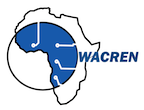Speaker
Rafael Valle
(RNP - Brazilian NREN)
Description
This paper aims to describe the results of close collaboration between the Brazilian NREN, RNP, and the research community in Brazil, in the joint development of advanced Internet services. This collaboration has a long history – several of the community members involved in the recent development activities described here were already actively involved in the deployment of the first academic networks in Brazil between 1988 and 1992. However, it must also be recognised that new generations of computer science researchers continue to be drawn to the challenges of computer networking and its applications, and that is also the case in Brazil, where most of the proposals received by RNP for new services now come from younger generation scientists.
The motivation for the work described here has always been to improve the service offerings provided by RNP, by capitalising on the capacity of the national network and distributed systems research community to develop innovative solutions. Many of these have been motivated by the desire to interoperate with new services and models continually introduced in leading R&E networks throughout the world, and it is a tribute to our development teams that such interoperation has greatly increased in recent years.
Nowadays the big challenge to Internet Service Providers (ISPs) is create new services to be competitive at low costs in a very aggressive market. NRENs have to participate in the ISP marketplace and must offer advanced Internet services in order to differentiate themselves from commercial ISPs. How should an NREN deal with this challenge?
The RNP Working Groups programme was launched in 2002 with the objective of developing collaborative projects between RNP and national research groups, which demonstrate the feasibility of using new network protocols, services and applications. Projects are proposed by national research groups, in response to an open call for proposals published annually by RNP. Each group designs and develops a pilot service, which is later evaluated and, if approved, will in the end be made available to RNP users. Since 2002, we have financed and accompanied the execution of about 100 one year projects, which have together generated 10 currently working services at RNP, in areas such as VoIP, PKI, CDN, video services, remote education support, network monitoring, as well as products in many areas.
This concept has also been adopted at RNP for introducing new technologies into core areas such as security services, performance monitoring and dynamic provisioning of virtual circuit services, in order to accompany international trends to add such advanced features to the service offerings of research networks. At RNP such developments contribute to the Advanced Internet programme, and have included especially in dynamic circuit provisioning, and high-performance (4K) video streaming and visualisation. In these cases, the theme of the working group is decided by RNP. However there are great similarities between these two manifestations of WGs. In both cases, research groups from the academic research community are the engines for the development of technology for RNP.
Some of these services and products aroused interest of NRENs and its institutions in others emerging countries, especially in Latin America, but also in Africa. This interest led groups to also engage collaborators from others countries which contribute to the internationalization of RNP solutions. RNP’s initiative of promoting local development of Internet services has value, not only for Brazil, but also for R&E networks in other countries, both in providing an example of what can be achieved, but also cooperating with such networks to contribute to their development.
Primary authors
André Marins
(Brazilian Research and Education Network (RNP))
Iara Machado
(Brazilian Research and Education Network (RNP))
Michael Stanton
(Brazilian Research and Education Network (RNP))
Rafael Valle
(RNP - Brazilian NREN)

